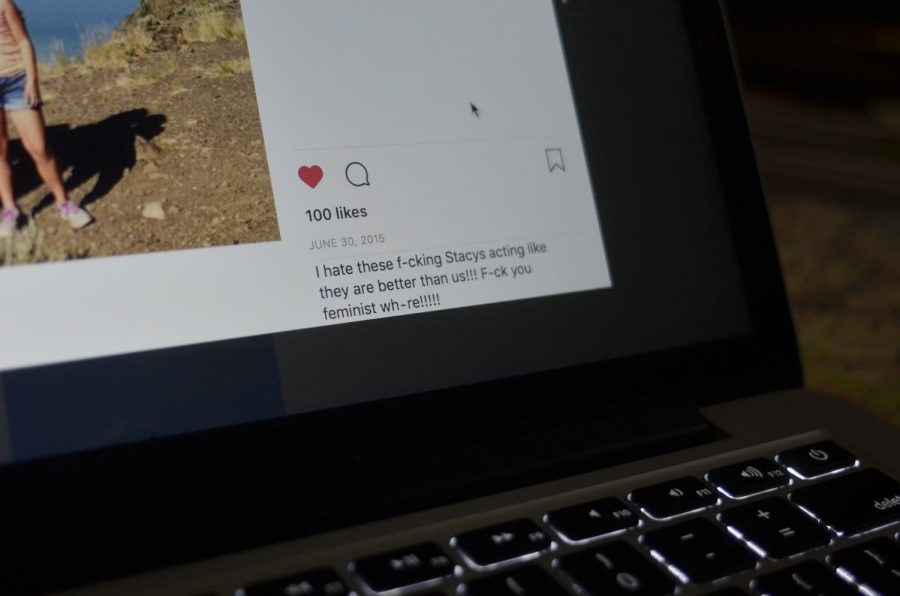Entitlement has no place in today’s dating landscape
People should not believe that others owe them affection just because they are nice
PAIGE CAMPBELL | EVERGREEN PHOTO ILLUSTRATION
Being in a relationship is not a right and people need to practice healthy methods for coping with rejection and learn that just being nice doesn’t guarantee a partner.
October 8, 2018
Mutual attraction is a memorable and irreplaceable experience, especially the first time it happens. The feeling is special, but some never experience it. While missing out on dating a crush is disappointing, no one should feel entitled to another person’s time and feelings.
There is a group out there that feels society “owes them” a mate and this way of thinking is harmful not only to those who believe it, but to the people around them as well.
You are only entitled to the autonomy of your own body and self. Even though someone else’s feelings may impact you, that shouldn’t give you control over how they feel. While these facts are understood by the vast majority of the population, there are people who handle rejection through anger and vengeance rather than acceptance and closure.
This entitled group of people is known as “involuntary celibates” or incels for short. They feel the world not only owes them a partner but that it is society’s fault they do not have one.
Attraction is one of the few purely subjective parts of life. There is no set of rules for what anyone must like or dislike. The idea that any one trait entitles you to not only a shot at a relationship, but an explanation of why it falls short, is laughable.
Jacob Frazier, sophomore psychology major, said the proper way to handle rejection is to move on rather than do something to get back at them.
“I’ve felt angry and wanted more after a rejection too, but that does not mean I can act out because of it,” Frazier said.
Incels feel marginalized in some capacity every time a man commits a crime of passion due to rejection from a woman or expresses feelings of self-doubt due to loneliness.
While this is not a way of thinking found exclusively in men, the negative results usually are. After a shooting in Sante Fe, Texas, a 16-year-old girl was wrongly thrust into the spotlight when it came to light that one of the shooter’s reasons for committing the crime was that she had rejected multiple advances from him, according to an article from the Associated Press.
If this was simply an extreme minority’s way of thinking this would not be a story, but there were full-grown adults attacking a high schooler because she did not entertain the boy in the way he wanted her too.
Harmful ways of thinking like this must end. No one is entitled to another’s attraction no matter how nice you are to them or how perfect you would be together. Every individual is responsible for their own thoughts, feelings and actions, but if it leads to rejection, people need to just accept it.
This problem has gone further than teenage boys too, which is why it is important to recognize the attitude and stomp it out before it becomes a mainstream way of thinking.
Alongside this entitlement is that other groups on social media, namely on Twitter, argue that rejecting someone due to a gender change is transphobic. This attitude not only sets transgender acceptance back, but also reinforces entitlement that is equally as toxic as it is for young men.
It may seem transphobic at first, but nothing should require you to be with someone else for any reason. Transgendered people deserve to have their voices heard and have love in their lives just like cisgender people, but the communities also need to have the same entitlement-free code of ethics when it comes to dating.
In order for progress to happen, we must change the culture around attraction for young boys and to teach them healthy ways to handle rejection no matter how much it hurts at the time.
While feeling angry and hurt after rejection is natural, there are healthier ways to process the pain. Even though handling rejection can be the hardest part of life for some people, ending a culture of entitlement makes the world a better place.









